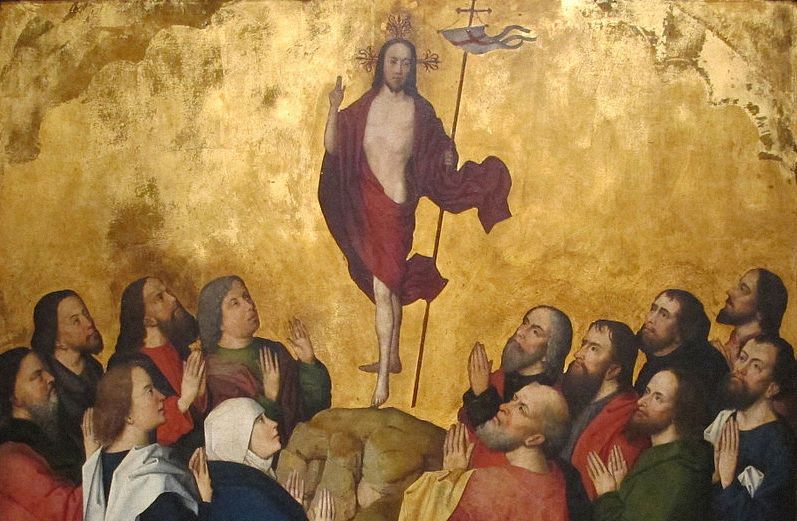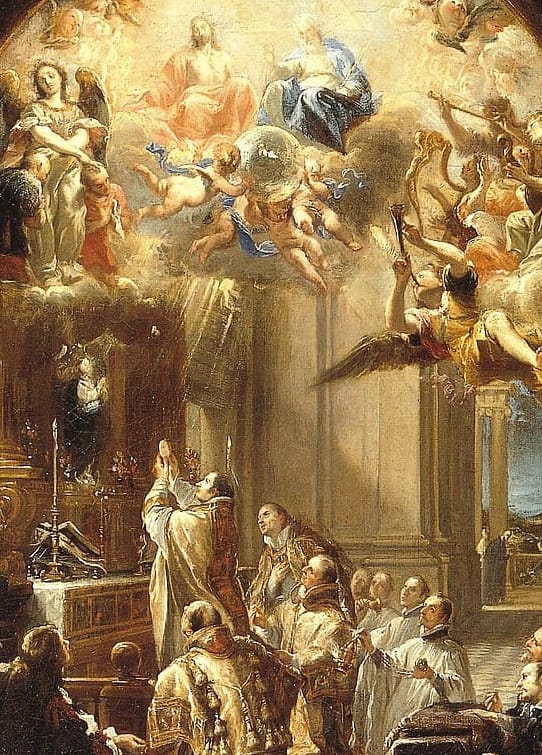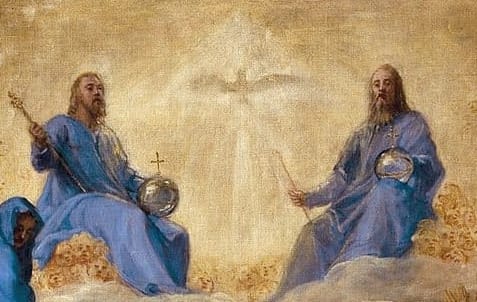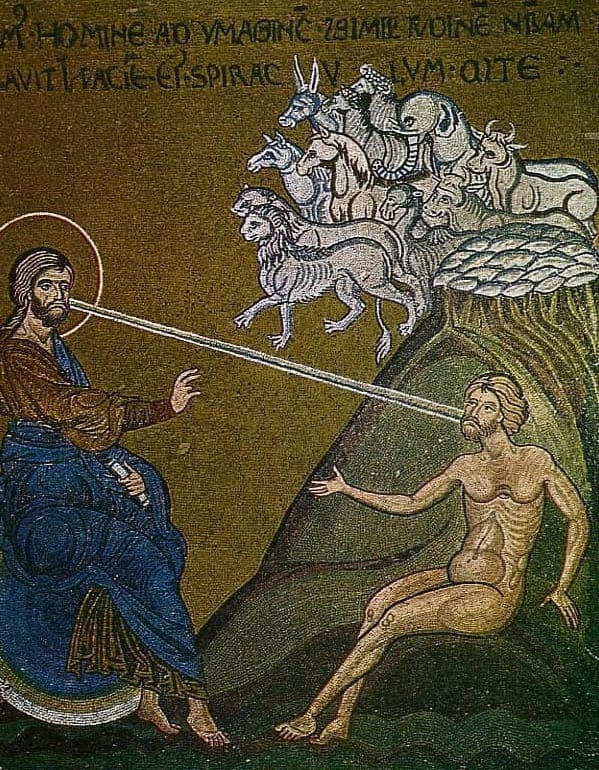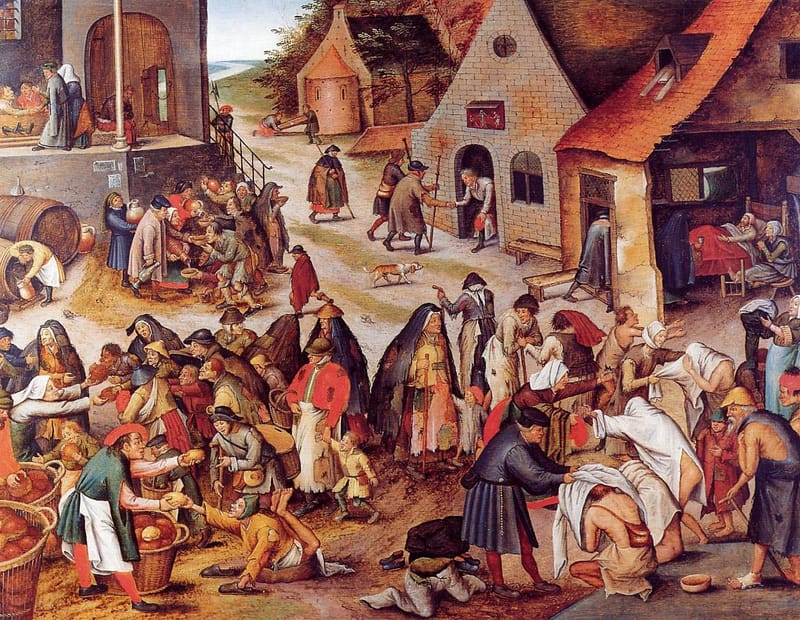The Church closes the liturgical year with the Solemnity of Christ the King. Pius XI instituted this feast in his 1925 encyclical Quas Primas. In that document, he unpacked the mystery of Christ’s kingship while acknowledging that only the liturgy, not his encyclical, could impress that mystery upon the minds and hearts of the faithful.
“It is necessary that the kingship of our Savior should be as widely as possible recognized and understood. To that end, nothing would serve better than the institution of a special feast in honour of the Kingship of Christ. For people are instructed in the truths of faith, and brought to appreciate the inner joys of religion far more effectually by the annual celebration of our sacred mysteries than by any official pronouncement of the teaching of the Church. Such pronouncements usually reach only a few and the more learned among the faithful; feasts reach them all. The former speak but once, the latter speak every year, indeed, forever. The Church's teaching affects the mind primarily; her feasts affect both mind and heart, and have a salutary effect upon the whole of man's nature. Man is composed of body and soul, and he needs these external festivities so that the sacred rites, in all their beauty and variety, may stimulate him to drink more deeply of the fountain of God's teaching, that he may make it a part of himself, and use it with profit for his spiritual life.” (Quas primas n. 22)
Here is a selection of five books that can help us unpack the mystery of Christ’s kingship and live the solemnity more deeply.
- Quas Primas: Encyclical on the Institution of the Feast of Christ the King
by Pius XI - The Church Speaks to the Modern World: The Social Encyclicals of Leo XIII
edited by Étienne Gilson - The Metamorphoses of the City of God
by Étienne Gilson - Pro Rege (vol. 1) (vol. 2) (vol. 3)
by Abraham Kuyper - Dominion: How the Christian Revolution Remade the World
by Tom Holland
Pius XI (1922-1939) instituted the feast of Christ the King. Hence, the encyclical in which he introduced the feast is the obvious place to start to learn about its sense and purpose.
However, Quas Primas was not the only encyclical in which Pius expounded upon Christ’s kingship. He first addressed it in his maiden encyclical: Ubi arcano Dei consilio (On the Peace of Christ in the Reign of Christ).
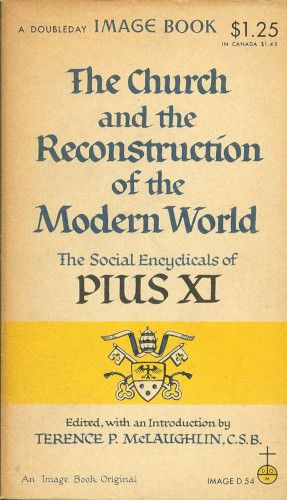
1.
As Pius explains in that programmatic missive, his papal motto—The Peace of Christ is in the Kingdom of Christ (Pax Christi in Regno Christi)—expressed his intention to continue the pastoral programmes of his two immediate predecessors (Ubi arcano Dei consilio n. 49). Like Benedict XV, he was committed to promoting peace in the wake of the Great War. At the same time, he believed that peace could only be achieved by continuing Pius X's work “to restore all things in Christ” (Ephesians 1:10).
“It is apparent from these considerations that true peace, the peace of Christ, is impossible unless we are willing and ready to accept the fundamental principles of Christianity, unless we are willing to observe the teachings and obey the law of Christ, both in public and private life. If this were done, then society being placed at last on a sound foundation, the Church would be able, in the exercise of its divinely given ministry and by means of the teaching authority which results therefrom, to protect all the rights of God over men and nations.
It is possible to sum up all we have said in one word, ‘the Kingdom of Christ.’”
Ubi arcano Dei consilio n. 47-48
One of the encyclical’s most important and enduring contributions was its teaching on the dignity and need of the apostolate of the laity (n. 58). The Second Vatican Council takes up Pius's teaching on the apostolate of the laity. Moreover, with Pius, it specifies that spreading Christ's Kingdom is the goal of the lay apostolate (Apostolicam actuositatem 2).
The sixteenth centenary of the Council of Nicaea (325) afforded Pius one reason to publish a more systematic teaching on Christ’s kingship. What prompted him primarily, however, was the encyclical that Leo XIII had published for the 1900 jubilee: Annum sacrum (print edition) .
There, Leo had taught that Jesus is the king of all, both the baptized and the unbaptized.
The 1925 jubilee was the perfect occasion for Pius to develop this Leonine teaching. He would do likewise with his encyclicals on marriage and the political economy. Each commemorates the anniversary of Leo’s important encyclical on these subjects and develops its teaching.
How, then, does Quas Primas develop Leo's teaching on Christ's kingship?
First, Pius specifies that Christ's kingship is not merely metaphorical. Even non-believers might deem Christ kingly on account of his unrivalled perfection as a man. Jesus, however, is truly the Lord, the king of kings. Scripture and the ancient liturgies repeatedly attest to this.
Moreover, his real and rightful kingship over all things is grounded in each of his two natures.
He is not just king of all things in virtue of his Incarnation: on account of his divine nature and its union with his human nature in his divine person. In this regard, Jesus is Lord and king along with the Father and the Spirit.
However, he is also the real and rightful king of all things for a second reason, one that is peculiar to him. All authority in heaven and earth has been conferred upon his glorified human nature. This occurred when, having accomplished the work of our Redemption, he rose from the dead. Jesus is also the real and rightful king of all things because he our Redeemer.
So, Christ’s kingship is real. As such, it consists of a threefold power: legislative, judicial, and executive.
Furthermore, his kingdom is primarily spiritual and concerned with matters pertaining to the spirit.
At the same time, Pius makes an important clarification.
“It would be a grave error, on the other hand, to say that Christ has no authority whatever in civil affairs, since, by virtue of the absolute empire over all creatures committed to him by the Father, all things are in his power. Nevertheless, during his life on earth he refrained from the exercise of such authority, and although he himself disdained to possess or to care for earthly goods, he did not, nor does he today, interfere with those who possess them”
Quas primas n. 17
In other words, Christ’s kingship is not just spiritual or eschatological. It is social too. All humans, whether baptised or not, are under Christ’s rule.
“Nor is there any difference in this matter between the individual and the family or the State; for all men, whether collectively or individually, are under the dominion of Christ. In him is the salvation of the individual, in him is the salvation of society”
Quas primas 18.
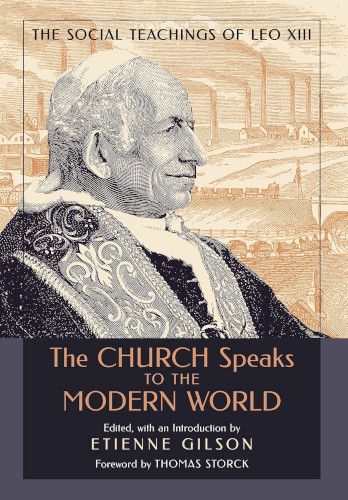
2.
Some scholars view Pius’s teaching on Christ’s kingship as the culmination of Catholic social teaching. The drama of modern secularism cannot be adequately understood or resolved if it is reduced to a primarily political problem of Church and State. Rather, all persons and societies must come to grips with the mystery of Christ. Consequently, as Russell Hittinger has noted, Quas Primas marks the definitive passage within Catholic social teaching from a more political register to a primarily Christological one.
In this regard, it crowns Leo XIII’s project to present the Catholic doctrine on society systematically and to form the conscience of those living in an increasingly de-Christianized world. For this reason, reading Leo’s principal social encyclicals is fundamental for understanding Quas Primas in full as well as Pius XI’s other major teachings.
Happily, Étienne Gilson’s excellent edition of them has been rereleased recently.
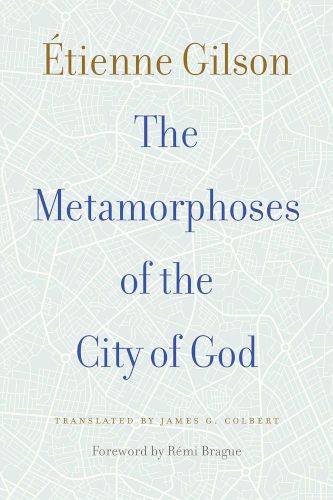
3.
Gilson was one of the major Catholic thinkers of the twentieth century. For a time, he was even actively engaged in politics.
Gilson admired Pius XI and was at the height of his career when Quas Primas came out.
Nevertheless, the social kingship of Christ does not feature much in Gilsons's writings. Except for his intriguing essay, “The Intelligence in the Service of Christ the King” (reprinted in A Gilson Reader), there is nothing on the subject in his extensive writings on politics. At least, not explicitly.
However, Gilson addresses Christ’s social kingship obliquely in the Cardinal Mercier Lectures that he delivered at the University of Louvain in 1952.
These lectures were published later as The Metamorphoses of the City of God.
The Church’s teaching on Christ’s social kingship appears to entail a Respublica Christiana: “the people formed by Christians dispersed throughout all the nations of the earth, whose temporal relations are, or should be, affected by their shared membership in the Church.”
For Gilson, it is up to the theologians to determine whether there needs to be some sort of Christendom and, if so, how it is related to the Church. What interests him, in his capacity as a Christian philosopher, is that there have been many false conceptions of Christendom. There have been repeated attempts to conceptualise and institute a universal temporal society. In The Metamorphoses of the City of God, Gilson explores them and explains how each is inspired by the notion of the city of God (or, we might add, the kingdom of Christ). Each reduces the city of God to the temporal.
Gilson's study not only shows that attempts to institute a global polity are inspired by Christendom. He thereby reminds us sotto voce that Christ alone is the king of all, and the Church the one truly universal (i.e. catholic) society.
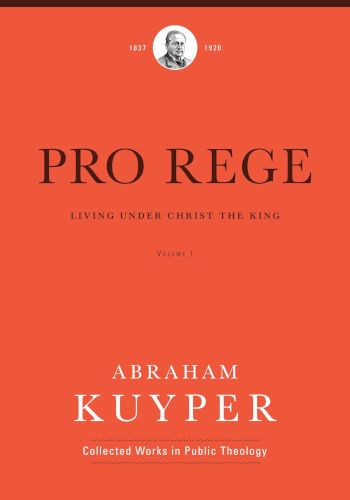
4.
Originally, the feast of Christ the King was celebrated on the last Sunday of October, right before All Saints (November 1).
That date was chosen to “proclaim and extol the glory of him who triumphs in all the Saints and in all the Elect” (Quas primas 29).
With Paul VI’s reform of the Roman Rite, the feast was placed on the last Sunday of ordinary time. This moved the focus of the feast away from Christ’s social kingship to his eschatological reign.
Nor is it just the liturgical calendar that effectuates this shift. As several scholars have detailed, the Missal and lectionary do so too.
The commission charged with revising the prayers and readings for the feast probably reasoned that, given the Second Vatican Council’s teachings on religious liberty and ecumenism, it was necessary to downplay Christ’s social kingship. References to his social kingship would, as they saw it, come across as a liturgical endorsement of Catholic states.
Arguably, the commission’s ecumenical concerns were unfounded. Pius XI’s teaching on Christ’s social kingship is more likely to appeal to Protestant Christians than put them off.
The importance of Quas Primas has not been lost, for example, on Stanley Hauerwas, a major Protestant theologian.
He turns to that encyclical in his assessment of the liberal conception of freedom of religion and Church-state relations.
He finds the liberal conception wanting and states his own position in the title of his essay: “The Kingship of Christ: Why Freedom of ‘Belief’ Is Not Enough” (reprinted in In Good Company).
The liberal conception of freedom of religion is problematic, Hauerwas notes, because its understanding of freedom and religion is very different from the Christian’s.
For the Christian, freedom is not a good in and of itself. Rather, freedom only exists so that we might choose the good. It is not inherently good, but only good instrumentally and derivatively.
Nor do Christians think of religions as liberals do. Liberals tend to regard any form of worship as a religion, no matter who or what is being worship. They dissociate religion and worship from questions about which God is being worshipped and whether this is the true God. That is not at all the Christian view of religion, Hauwerwas insists.
“Christians are not ‘religious’ in any general sense; rather Christians are the people who acknowledge the kingship of Christ.”
This is why Hauerwas appreciates Pius XI and Quas Primas. He turns to Pius XI "because he reminds us that Christians must acknowledge Christ’s kingship not only in belief but in practice, lest they find themselves worshiping foreign gods.”
In Quas Primas, Pius simply ponders the social implications of Christ’s Incarnation and Resurrection. Hauerwas summarises the encyclical thus
“(I)f Christ became one of us, then he (like us) was embodied; and if Christ is king, then his kingdom is embodied as well. Or to put it conversely, Christ’s kingship cannot be confined to some interior, privatized, spiritual realm; it is social, material, and (in the fullest sense of the word) political.”
While Hauerwas looks to Quas primas for a prime doctrinal statement of Christ’s kingship, other Protestant theologians, working within their own traditions, have reached much the same conclusions.
Perhaps the most sustained and systematic presentation of the social implications of Christ’s kingship from the Protestant tradition is Abraham Kuyper’s Pro Rege: Living Under Christ the King.
Kuyper (1837-1920), was a Calvinist theologian and politician, who served as Prime Minister of the Netherlands (1901-1905).
He was also a journalist. As a result, Pro Rege is highly readable despite its size.
The introductions to the English edition put the work into context and do not shy away from identifying some of its doctrinal limitations.
While Kuyper upheld Calvinism, and the popes Catholicism, his project resembles that of the bishops of the Rome of his lifetime. Like them, he appeals to the Gospel to counter the secularism ushered in by the French Revolution. Like them, he sets out the social implications of the truths professed in the Creed. Unsurprisingly, many of Kuyper’s social teachings are substantially the same as those of the modern popes.
Scholars point, for example, to the similarities between his doctrine of sphere sovereignty and the papal teachings on subsidiarity. Both insist that human nature, as created by God, is the source of different kinds of society, each with its specific end and norms. The state is one such society. However, it is not the source of all the others. The state may have the authority to coordinate other societies or spheres, but it does not have the right to suppress or subvert them. Rather, it should support them without stifling them.
Kuyper’s most celebrated saying comes from a speech he gave on sphere sovereignty:
“There is not a square inch of the whole domain of our human existence over which Christ, who is Sovereign over all, does not cry: ‘Mine!’”
The editors of the English edition of Pro Rege suggest that the work is an extended commentary on this statement. In the work, Kuyper explains how,
“The dominion of Jesus’ kingship extends also to family, society, state, scholarship, art, and every other sphere of human activity.”
Reading Kuyper can help Catholics get a fresh perspective on many of the teachings of Leo XIII and Pius XI. Similarly, reading Leo and Pius, along with the Catechism, will help them discern problematic points in Kuyper’s theology. Overall, however, Pro Rege is an inspiring meditation on Christ’s kingship.
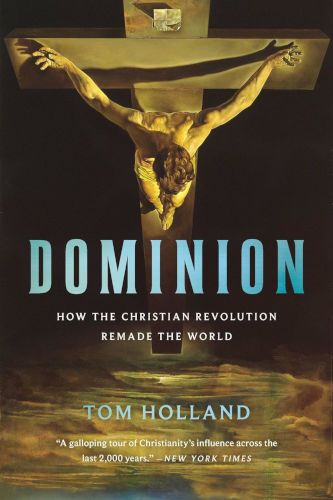
5.
Whereas Christians confess that Jesus in the Lord, more and more people in the once-Christian countries of the West are abandoning religion altogether.
The nones tend to cite something such as “Enlightenment values” as their creed. Moreover, they normally assume that Christianity’s waning influence is a healthy development: one less obscurantist encroachment upon liberal democracies.
What they fail to realise is that the values they prize under different nomenclatures—the West, the Enlightenment, liberalism, socialism, progressivism—are rooted in Christianity. This is the thesis of Tom Holland’s Dominion: The Making of the Western Mind. To prove that thesis, Holland takes a reader on a roller-coast ride through two thousand years of Western history.
Dominion is a work of popular history, written by a secularist. Even so, it corroborates many of Pius XI’s claims about the social benefits of Christianity. Therein lies its value. It is a secularist confirmation of part of the Church's teaching on Christ’s kingship.
As a secularist, Holland wants to skip over the first table of the Decalogue and stick with the second. He wants to hold onto Christ’s teaching about love for each person without believing “in one Lord Jesus Christ.” He wants to stick with the Enlightenment reduction of Christianity to a secular, this-worldly morality. Nevertheless, he has the intellectual honesty to recognise not only the West’s ideological dependence upon Christendom but also the danger it runs. The more the West distances itself from Christ, the more likely it will end up depleting entirely the moral and intellectual capital it has inherited from Christianity.
The historical precedents Holland cites show that an utterly de-Christianised society is not a pretty one.
Without meaning to, Dominion indicates how indispensable to society are devout Christians, committed to the Christ’s kingship.

